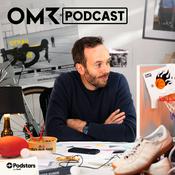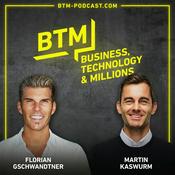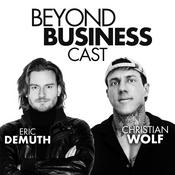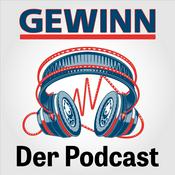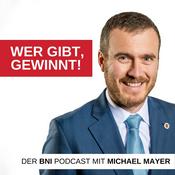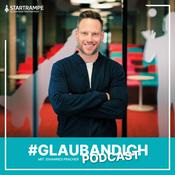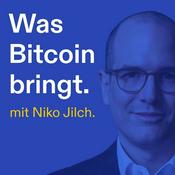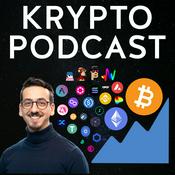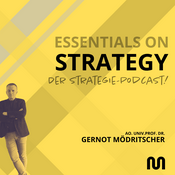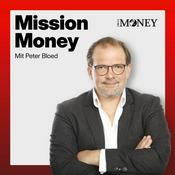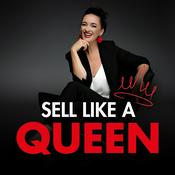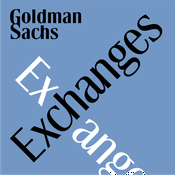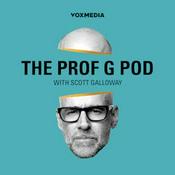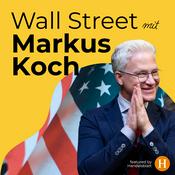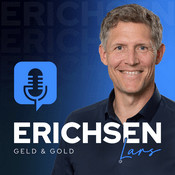Verfügbare Folgen
5 von 23
- Bryan Taylor, Advent’s Managing Partner: Europe is nearing its golden years of tech investingBryan Taylor has been investing in technology for over 25 years, the last six years at Advent as Managing Partner. He’s been involved in a number of major transactions, such as one involving Wiz, a leading cloud security company, and McAfee, a global provider of antivirus and cybersecurity solutions.Boston-based Advent is a powerhouse of private equity. It’s been in the industry for more than 35 years and currently manages over $90 billion in assets. The firm consistently ranks among top PE firms with an unparalleled global presence, particularly in Europe.In this episode of Deal Talk series with Steffen Pauls, Moonfare’s Founder and Co-CEO, Bryan shared his views on a wide-range of topics — from opportunities in AI, current state of dealmaking to how Advent wins deals. Some of the highlights include:Exit strategy: “We systematically make exits part of our underwriting. We’re looking for what we call multiple exit ramps. Not just one but multiple options to exit. As a result, we’ve had great strategic exits in the last two years as well as fantastic IPOs.”Long-term relationships: “We have 200 investment professionals who are creating deals from the bottom up, finding off-the-beaten-path opportunities. Often, when a deal starts, we have already spent years working with the management team to put together a value-creation plan to drive performance.”Investing in Europe: “It feels as though we’re approaching the golden years of tech investing in Europe. There is a dynamic of increased spend around innovation. We have seen a maturing of a very large cohort of companies founded in the last 5–10 years that have figured out how to go across borders. And there is still a relatively benign competitive environment.”Life advice: “You have to learn from other great investors; they are not born but grown. I emphasise to my kids: make sure you work with people you respect, align on values and feel they invest in you.”Important notice: This content is for informational purposes only. Moonfare does not provide investment advice. You should not construe any information or other material provided as legal, tax, investment, financial, or other advice. If you are unsure about anything, you should seek financial advice from an authorised advisor. Past performance is not a reliable guide to future returns. Don’t invest unless you’re prepared to lose all the money you invest. Private equity is a high-risk investment and you are unlikely to be protected if something goes wrong. Subject to eligibility. Please see https://www.moonfare.com/disclaimers.--------31:53
- Moonfare Insider Talks Episode 01: Azeem AzharAzeem Azhar is an investor, entrepreneur, best-selling author and creator of Exponential View, a leading newsletter and podcast on technology’s future. Known for spotting emerging technology like DeepSeek, he’s been at the forefront of tech’s impact on society. His work has appeared in the Financial Times, New York Times, MIT Technology Review and more.In this conversation, Azeem joins Mike O’Sullivan, Moonfare’s Chief Economist, to discuss:- How AI has developed over the past five years- Strategic AI race between the US, Europe and China- Whether AI is driving compounding economic shifts, affecting industries, labor and productivity- AI investment growth: where smart capital flows and trends that Azeem seesAzeem and Mike finish the session with a Q&A submitted by webinar guests.Learn about our upcoming live webinars: https://moonfa.re/471QVQp--------57:18
- Nic Humphries, Executive Chairman at Hg, on firm’s unique approach to exitsNic Humphries is one of Europe’s most prolific technology investors and the Senior Partner and Executive Chairman of Hg — a specialist in enterprise software with over $75 billion in assets under management and a portfolio of more than 50 companies.Nic became part of Hg in 2001, where he also served as CEO for ten years before assuming the role of Chairman in 2017.In an interview with Steffen Pauls, Moonfare’s CEO and Founder, Nic talks about what makes a capital compounder, the investment strategy behind great portfolio companies like Visma and the thought process that drives the firm's approach to exits — along with many other topics. Here are some of the key takeaways:What makes a great capital compounder?“The very best businesses have a great home market, offer the best quality products and services and attract customers who flock to them. However, that’s not sufficient to make a compounder. These businesses also have the ability to invest excess capital consistently over decades. There’s not a lot of these companies.”Investment case for Visma“Visma started as a leader in small business tax, accounting and payroll software in a small number of countries. We recognised we had the potential to transport that capability to many other markets. However, to do that you have to understand the culture, the tax and compliance rules in other countries — essentially you need to know how to operate in a local way and Visma had that from day one.”Hg’s approach to exiting investments“In an average portfolio, you have some good exits early on and poor investments that are left at the end. But that’s like cutting the flowers and watering the weeds. We wanted to reverse that by acknowledging that unfortunately, some investments won’t be so good, and selling them early to drive DPI and cash. You should then keep better investments for later.”Advice to his younger self“Pick a sector that will be growing for the next 10, 20 or 30 years, where the winds are at your back. I grew up in a mining town and lots of my friends went to work in the local pit. And I could have been the world's best miner and still wouldn't have a job today. But you could have been a very average software developer and you’d still do okay.”Important notice: This content is for informational purposes only. Moonfare does not provide investment advice. You should not construe any information or other material provided as legal, tax, investment, financial, or other advice. If you are unsure about anything, you should seek financial advice from an authorised advisor. Past performance is not a reliable guide to future returns. Don’t invest unless you’re prepared to lose all the money you invest. Private equity is a high-risk investment and you are unlikely to be protected if something goes wrong. Subject to eligibility. Please see https://www.moonfare.com/disclaimers.--------39:18
- Permira’s co-CEOs Brian Ruder and Dipan Patel: We see interesting opportunities for take-privatesFounded in 1985, Permira has invested around €75 billion in hundreds of businesses worldwide from a platform that spans large-cap private equity, growth equity and credit strategies.Brian and Dipan have played key roles in expanding the firm’s global presence and diversifying its investment strategies.In their conversation with Steffen, they shared insights into their transition to co-leadership, their outlook on the private equity market and Permira’s approach to take-private opportunities.Here’re some of the highlights: Benefits of a co-CEO model“The art of leading is about how to make high-quality decisions in a reasonable period of time. A co-CEO model allows us to share ideas, challenge each other and ultimately helps us make better decisions faster."The appeal of private equity “Private markets have been successful because they offer high alignment and control in how businesses operate. Their timeframes — typically a 7-year-plus horizon for creating value — is hard to achieve in public markets where shareholders want to see quarterly progress on pretty much every initiative.”Opportunities in take-privates “Public markets are great if you’re in private equity. There’s a level of inherent ‘short-termism’ in public markets where 70% of activity is driven by computers. Meanwhile, the world of long-only fund management is becoming smaller, which creates more volatility but also generates many interesting opportunities for take-privates.”Success in the consumer sector“We are looking for brands with great products that people love and where we see the opportunity to do something fundamentally different. Golden Goose, for example, had only a small presence in the US when we invested. It’s now a significant part of the business. Previously, the company's revenue came almost entirely from footwear, but now a meaningful percentage is generated from non-footwear products.”Important notice: This content is for informational purposes only. The opinions expressed by the interviewee are their own. They do not purport to reflect the opinions or views of Moonfare. Moonfare does not provide investment advice. You should not construe any information or other material provided as legal, tax, investment, financial, or other advice. If you are unsure about anything, you should seek financial advice from an authorised advisor. Past performance is not a reliable guide to future returns. Don’t invest unless you’re prepared to lose all the money you invest. Private equity is a high-risk investment and you are unlikely to be protected if something goes wrong. Subject to eligibility. Please see https://www.moonfare.com/disclaimers.--------52:11
- Robert F. Smith, Founder, Chairman and CEO of Vista: Emerging technologies are creating opportunities for software investorsRobert F. Smith is the Founder, Chairman and CEO of Vista Equity Partners, an investment firm that specialises in enterprise software. Originally from Colorado, Smith began his career as an engineer before moving into finance, where he developed a focus on the tech industry.Under Smith's leadership, Vista Equity Partners has grown significantly, currently managing over $100 billion in assets. The firm is known for its approach to improving operations and driving growth in its portfolio companies.In a conversation with Steffen Pauls, Moonfare’s Founder and CEO, Smith shared his views on the rise of generative AI, the future of enterprise software, market trends in private equity and the advice he would give his younger self. Here are some of the highlights:The vast potential of software “Software continues to be the most productive tool introduced in the business economy in the last 50 years. Businesses have found that their next best purchase is to buy more software which can enable them to increase productivity and efficiency. I thought that would be a good place to start investing capital. That’s why I started Vista.”Seizing take-private opportunities “For the first time in quite some time, enterprise software companies have become more affordable in public markets. That’s why we have completed many take-privates in the last 18 months. We look for companies that have product superiority and execution excellence capabilities but have, in some respects, fallen out of favour with public market investors who have turned their attention to generative AI-focused companies.”Investing in private markets “About 97% of software companies are private, and the vast majority of investors and consumers don’t really know that because people don’t necessarily talk about enterprise software. Privately owned software companies can take a longer-term view on the application of tools like generative AI, enabling them to better navigate innovation cycles.”The importance of being curious “The advice that I continue to support is to remain curious. Continue to expand the aperture of relationships early and learn from people who apply new thoughts and technologies, and see how you can apply them to the work you’re in.”Important notice: This content is for informational purposes only. The opinions expressed by the interviewee are their own. They do not purport to reflect the opinions or views of Moonfare. Moonfare does not provide investment advice. You should not construe any information or other material provided as legal, tax, investment, financial, or other advice. If you are unsure about anything, you should seek financial advice from an authorised advisor. Past performance is not a reliable guide to future returns. Don’t invest unless you’re prepared to lose all the money you invest. Private equity is a high-risk investment and you are unlikely to be protected if something goes wrong. Subject to eligibility. Please see https://www.moonfare.com/disclaimers.--------56:52
Weitere Wirtschaft Podcasts
Trending Wirtschaft Podcasts
Über Deal Talk: Interviews with Private Equity Leaders
Steffen Pauls, Founder and CEO of Moonfare, speaks to leading investment managers from across the private equity and venture capital industry to uncover the key topics and trends that are shaping private markets now and may do so in the future.
Subject to eligibility, capital at risk.
Podcast-WebsiteHöre Deal Talk: Interviews with Private Equity Leaders, Alles auf Aktien – Die täglichen Finanzen-News und viele andere Podcasts aus aller Welt mit der radio.at-App
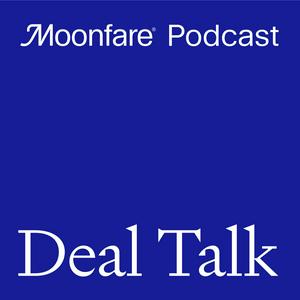
Hol dir die kostenlose radio.at App
- Sender und Podcasts favorisieren
- Streamen via Wifi oder Bluetooth
- Unterstützt Carplay & Android Auto
- viele weitere App Funktionen
Hol dir die kostenlose radio.at App
- Sender und Podcasts favorisieren
- Streamen via Wifi oder Bluetooth
- Unterstützt Carplay & Android Auto
- viele weitere App Funktionen


Deal Talk: Interviews with Private Equity Leaders
Code scannen,
App laden,
loshören.
App laden,
loshören.

